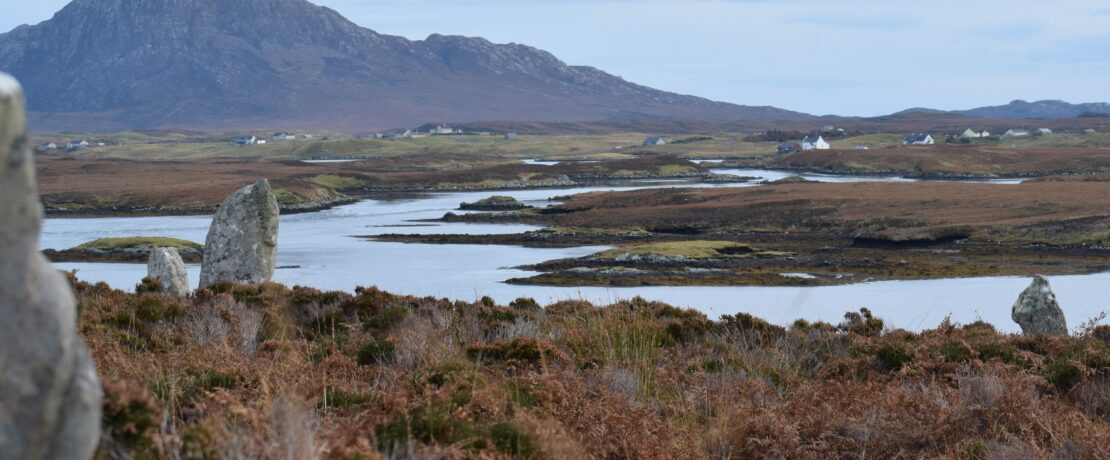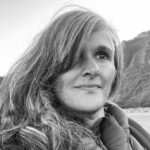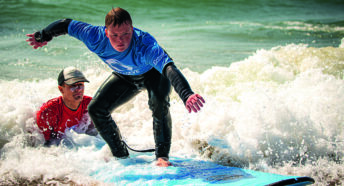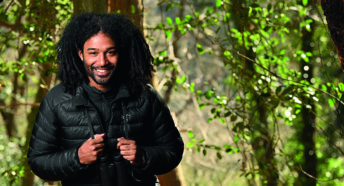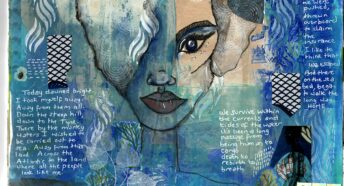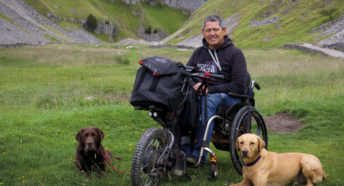A Wild Becoming by Dal Kular
Walking along Howmore Beach in South Uist, I feel me — wildly alive — feeling salt-water shimmering through my body, blood pulsing through my veins, shoulders releasing to the rhythms of Mother Sea. Here, I know who I am.
I’m nature and deeply loved by nature, beyond surface illusions of race. I’m simple, slow, ordinary. Blessed to be practicing the freedoms stolen from my ancestors. Watching ringed plovers flock to the sky, twinkling wings like sky-glitter. Just for me.
Journal entry, 12th September 2023
***
My earliest memory of being awed by nature was of my Dad taking me to Redmires Reservoir in Sheffield:
(taken from my essay, ‘The Ways We Haunt‘).
Even at that tiny age that watery glaze inhabited my psyche. Nature inhabited our inner-city back garden too ~ a hedgehog with a yoghurt carton stuck on its nose, the robins, sparrows and blue tits who ate the roti Mum left out for them, an old oak tree moaning when pushed by the wind, house spiders hiding in cupboards, and Spot the rabbit, who escaped his cage during a storm and never came back.
From visiting rural Punjab at six years old and trying to milk a cow unsuccessfully, to joining the Young Ornithologists Club to formative school youth hostelling trips to Wales and Derbyshire, little me relished in the wide openness and freedom I felt when I’d escaped bricks, smog and weekly racial abuse. At fourteen years old, we all moved house to the edge of a large woodland. That woodland, with its trees, birds, squirrels and deserted paths, became my truanting sanctuary, respite for my deteriorating teenage mental health. I’d no idea back then that this woody retreat was helping me to survive, to heal. I just knew I felt good in the woods.
During my late teens and early twenties I worked a mash-up of indoor jobs: factories, night-cleaning, pizza delivery, shop assistant, admin, telecentre work. I lived for music and for clubbing and these jobs paid for it all. A group of friends and I spent our nights dancing to soul, funk and early house, getting drunk, snogging, staying up all night, hangovering, then dragging ourselves through the day job and repeating it all again the night after.
That was how we felt wild and alive back then. Looking back, I can see this was my way of medicating my other-wired brain, of dealing with racialised traumas of my childhood, of being ‘othered’. Between the beats of house music and lips finding each other I was numbing pain.
CJ (named changed) was part of our group. With forest-green eyes, and Cuban/Irish roots CJ loved nature too. CJ reconnected me to nature, dragging me up crags to watch the sunrise, me still wearing stilettos from the night before. We once borrowed my brother’s red mini metro to go to Blackpool with just 50p in our pocket to skinny dip in the sea. We watched starlings murmuring across Sheffield, and drove that same metro back and forth under Stanage Edge – windows open, hair blowing – with Aretha Franklin playing full blast from the car’s cassette player.
We had no fancy equipment, no walking boots, no waterproofs. It was just us, two ordinary working-class Black and Brown kids that’d been spat out of education at 16 years old. CJ reminded me how good it felt to be in the green and wild silence around Sheffield. It was through CJ I started medicating myself with nature again.
I tried to find ways to belong and work in nature – through conservation volunteering and outdoor pursuits training. But none of that felt right. I felt too Brown in a white-dominated world, didn’t have the right equipment, or enough strength or stamina to keep up with others. I knew I loved nature and that nature loved me, but this outdoor pursuits world wasn’t my place. I needed to find a different way.
A way that was reciprocal and soft. Not extractive or requiring expensive equipment or qualifications, athleticism, ego or machismo. A gentle way. A kinful way. A slow way. Like the way of my rural Punjabi ancestors who use to walk between villages and temples and festivals for days, stopping frequently, sharing food, sleeping under stars, napping on hot afternoons. I could feel these ways in my bones. I needed to work out how to practice these ways here, in the UK.
This summer, I took a solo journey through the Outer Hebrides in my tiny campervan. For two and a half weeks I idled, watched rainfall, created nature rituals, journaled, bird-watched, skinny-dipped, slept, napped, cooked on my tiny stove, got bitten by midges, followed by cows, followed unsigned roads and paths. I revelled in being useless to capitalism. My journey was unambitious, aimless, unplanned. I simply turned up at ferry terminals or campsites and went with the flow. I wasn’t walking or cycling The Hebridean Way. I was just pottering my heart and soul out in nature.
This trip was special. A year earlier, I’d suffered a traumatic brain injury which still affects my daily life. That moment on Howmore Beach reminded me that I’m wildly alive. That even with my current limitations I’m living my best life. With, and as nature.
I’ve come full circle in my nature being-ness. If CJ were here now, he’d be proud of me. As a Brown woman, I claim these experiences — for myself, and for my ancestors — and for every woman of colour who wants to adventure in their own wild and green way.
About the author
Dal Kular is a writer, mentor and facilitator of creative writing, nature-allied and multi-media arts for healing and liberation based in Yorkshire. Her debut poetry book (un)interrupted tongues is published by Fly on The Wall Press. Shortlisted for Wasafiri New Writing Prize and Class Action Nature writing prize, she’s been a recipient of an Arts Council England Developing Your Creative Practice Grant and has contributed a chapter on nature and healing for the forthcoming anthology ‘Wild Service, to be published by Bloomsbury 2024. She loves making zines, botanical journals and roaming the Peak District in her tiny campervan.
